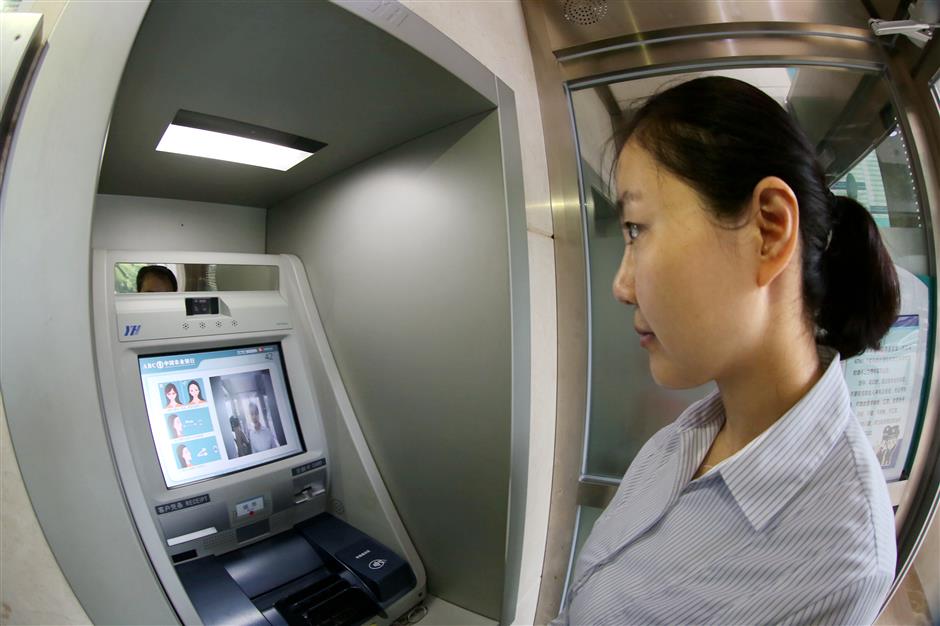Facial recognition ensures smooth travel during the National Day holiday

A woman uses a face ID-enabled ATM at a branch of Agricultural Bank of China (ABC) in Xiangyang city, central China's Hubei province, 25 September 2017.
During the National Day holiday, many Chinese travelers are enjoying smoother travel experiences thanks to pilot programs using face recognition to replace IDs checks at railway stations, hotels, banks and restaurants.
At the entrances to Jinan railway station in the capital of Shandong Province, passengers put their ID cards and tickets on the gate machines and infrared cameras scan their face before allowing them into the station.
The station no longer has staff checking the tickets and ID cards of passengers. Queues at the entrances moved smoothly using the new system.
"It only takes three seconds for passengers to pass through the gate using the new facial recognition system. It saves manpower and avoids errors in manual checks," said Cheng Xiaowei, a staff member at the station.
Many hotels in Jinan have also adopted a facial recognition system to check guests' identities. The system takes just 10 seconds to confirm the identity of the guest. Even if a hotel guest does not have their ID card, the system can still confirm their identity.
At three Agricultural Bank of China branches in the city, customers no longer need to insert their bank cards to withdraw money from ATMs. The machine scans the account holder's face to access their account. The bank has limited the daily withdrawal amount to 3,000 yuan (452 U.S. dollars).
Facial recognition is also being used in hotels and railway stations around the country, including those in the capital Beijing.
"Young people prefer facial recognition and it has great potential. More applications of the technology will come to our lives as it continues to improve," said Feng Wei from Shandong University.















